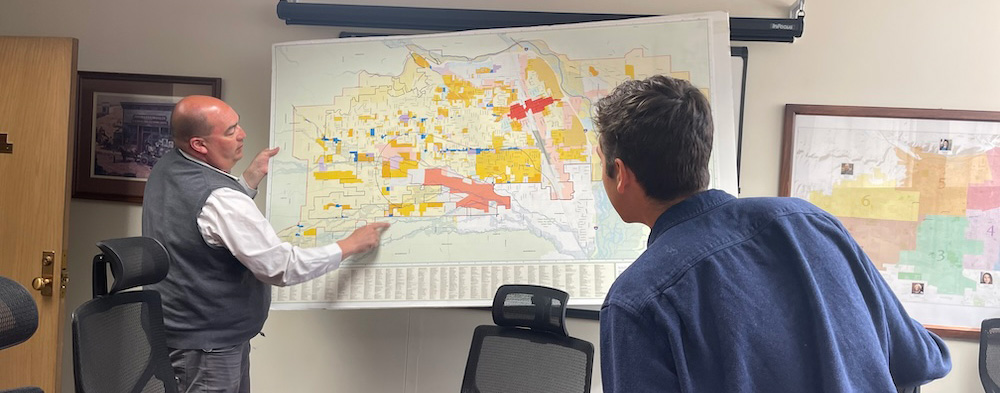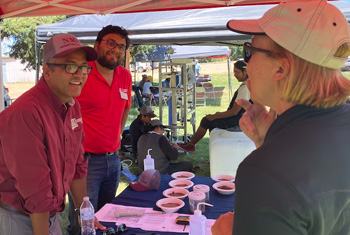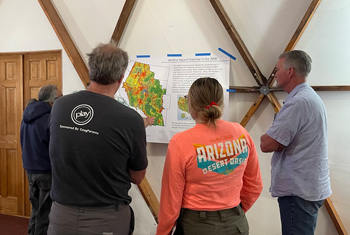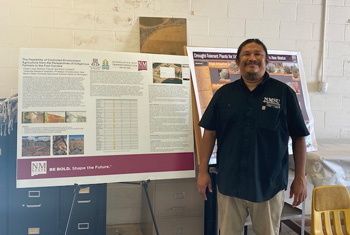Research

Utah State University graduate student, Alex Theophilus (right), conducting a research interview with a government official in Yakima, WA during his
field work for the “Characterizing Wellbeing Across the Intermountain West” project charter. (Photo by Jessica Schad)
Catastrophic wildfires, dwindling water supplies, and rapid urban population growth are some of the most pressing challenges facing the Intermountain West. The current services and resources available leave impacted urban and rural communities ill-equipped to face these issues.
However, the Western U.S. also contains vibrant cultures, enchanting landscapes, and abundant natural and human resources that give us every reason to believe that transformations to address these challenges are possible. The Transformation Network, comprised of academic and community partners deeply rooted in the Intermountain West, is dedicated to fostering a sustainable future for the region through our research efforts.
Our Core Research Themes
The Transformation Network’s work is rooted in three core research themes, based on key interconnected domains of resource management in the Intermountain West.
Resilient Headwaters
In the Intermountain West, communities, ecosystems, and farmers heavily rely on shrinking water supplies from mountain headwater systems. The Transformation Network is connecting individuals and organizations working on the landscape management solutions that are required to reduce wildfire risks and cope with water shortages. Our goal is to explore new ways to provide conflict free access to water, expand innovative watershed management strategies, and redefine the relationship between communities and ecosystems to harness the benefits of nature in reducing environmental and human-related disturbances.
Food-Energy-Water Systems
Food-Energy-Water Systems (FEWS) are deeply intertwined in global food production, supply chains, and water and energy management. We are investigating forward-thinking ways of transforming these systems by mapping market potential and connectivity, exploring regenerative agriculture innovations for more sustainable resource use, and by working with partners to advance food sovereignty solutions for Native American Nations.
Innovative Governance and Institutions
The Transformation Network is focused on advancing ways to broaden participation by integrating science and collective responses into governance systems and institutions at the local and regional scales. Our research will explore where and why participatory and collective approaches emerge, and the impact of these decisions on adaptations that affect environmental and human well-being.
Our Research Design
The Transformation Network’s research design includes three interconnected types of teams:
Collaborative Working Groups
Collaborative Working Groups facilitate cross-cutting opportunities and shared learning among projects, fostering collaboration and producing tangible outcomes.
Place-Based Collaboratives
Place-Based Collaboratives provide a platform for place-based, convergent research, and ensure integration of research themes and educational activities.
Project Charters
Project Charters are our venue for conducting convergence research, teaching, and outreach activities.





